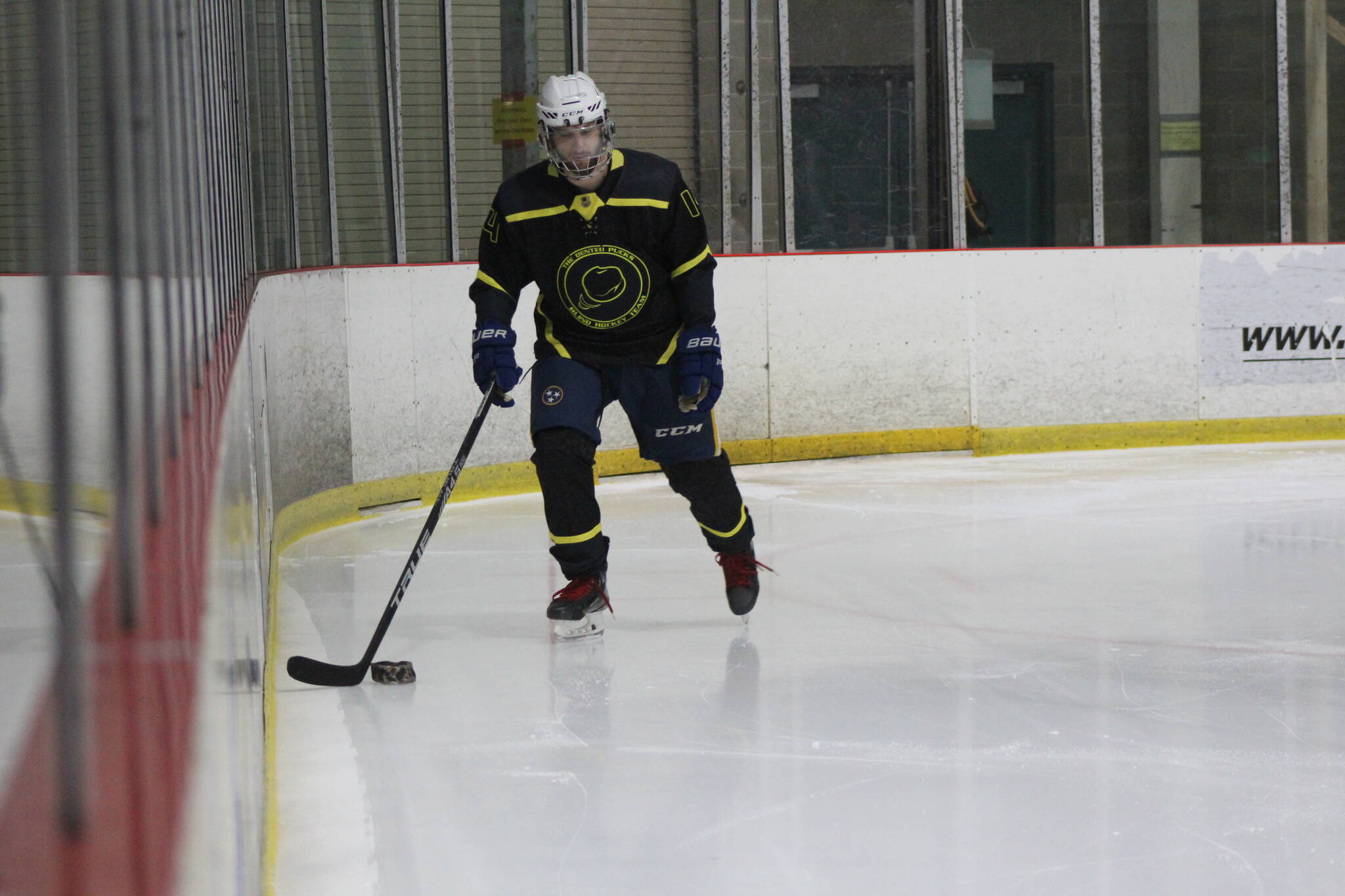“I never thought I’d be able to play hockey,” said 32-year-old Adam Young, a Kent resident and defensive player for the Seattle Blind Hockey team. “I was glued to the TV as a kid watching hockey and I told my teachers I’d be a hockey player.”
Young is visually impaired, with tunnel vision and near-sightedness in his right eye and no sight at all in his left eye. Thanks to his childhood in Michigan, Young had always been a hockey fan. But it wasn’t until recently that he realized he could actually play the sport himself.
In 2018, the United States Blind Hockey team was established, along with the Seattle Blind Hockey Association, and it didn’t take too long for Young to join the team.
The sport of blind hockey is for players who are visually impaired with limited to no vision. While most of the rules are the same as ice hockey, the biggest difference is that blind hockey uses an adapted puck that is larger and makes noise as it moves.
“It’s made of 22-gauge steel and has steel ball bearings in it, so the puck rings like a cowbell,” Young said.
According to the U.S.A. Hockey rulebook, typical pucks are one inch in thickness and three inches in diameter. In blind hockey, the metal puck is 1.875 inches thick and 5.5 inches in diameter. The larger size allows players who are visually impaired to see the puck, while the sound of the puck allows players with low or no vision to track it.
“I learned to play by watching games, but I couldn’t see the puck. I learned how to read the position of the players and where they would set themselves up,” Young said. “One of the fun things is seeing it differently, and now it’s fun to do all the things I grew up watching.”
Young learned to skate as a child growing up in the Midwest and was a natural on the ice. After moving to Washington seven years ago, Young continued to skate as much as he could at the Kent Valley Ice Centre, where he still trains a few times a week.
“I like people’s reaction with the blind puck because they would come up to me thinking that it’s a training tool, not realizing that I can’t see,” said Young.
Young’s talents on the ice have gotten him some recognition. For the second year in a row, he has been invited to join the national blind hockey training camp in Utica, New York. Mark DeFlorio, a player on the national blind hockey team and a co-founder of the Seattle Blind Hockey Association, has nothing but high praise for Young.
“Despite my vision loss, I have over 30 years of sighted hockey [and] structured hockey experience. The most amazing thing to me is that Adam has none — his talent is natural and his skill is self-taught,” DeFlorio said in an email. “His attitude and commitment are the exact traits the National Team needs.”
When he’s not playing hockey, Young spends time with his dogs, Walt and Sid, and he works at a veterinary clinic in Des Moines as a kennel assistant.
“They say I’m like a dog whisperer,” Young said with a laugh.
Last year’s training camp was postponed due to the pandemic, but Young is optimistic that he will be able to make it to this year’s camp, which will take place in mid-August.
However, blind hockey comes with some high costs. The large steel pucks take quite a beating and have to be replaced after each game, costing about $200 per puck. Young not only has to pay for each puck that he uses for training, but he must also pay his own travel expenses when he is invited to tournaments and camps.
“Last year’s GoFundMe raised $4,000 and it’s the only reason I get to go to the events, so I’m doing the same thing this year,” said Young.
No matter what, Young will continue to play the sport he loves, anywhere he can.
“How I deal with life comes from hockey. It’s taught me patience, it’s taught me how to be a team player, to be competitive,” Young said. “It’s taught me how to respect an opponent, how to hate them and how to forgive them when the game is over.”
Talk to us
Please share your story tips by emailing editor@kentreporter.com.
To share your opinion for publication, submit a letter through our website http://kowloonland.com.hk/?big=submit-letter/. Include your name, address and daytime phone number. (We’ll only publish your name and hometown.) Please keep letters to 300 words or less.

